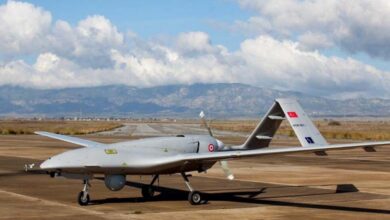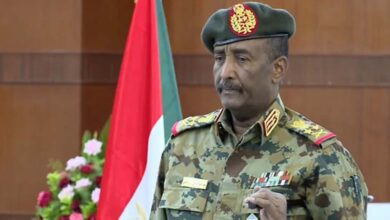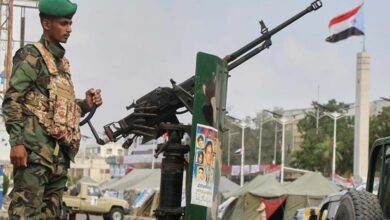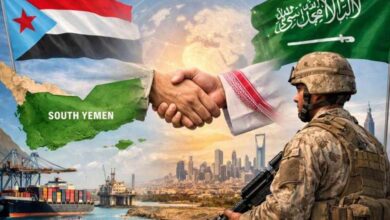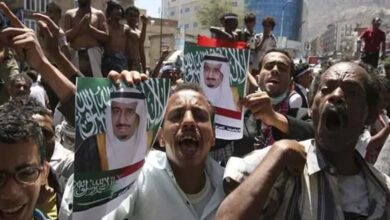Sudan on the Edge of an Eruption: Islamists and the Army Leading the Country into the Unknown
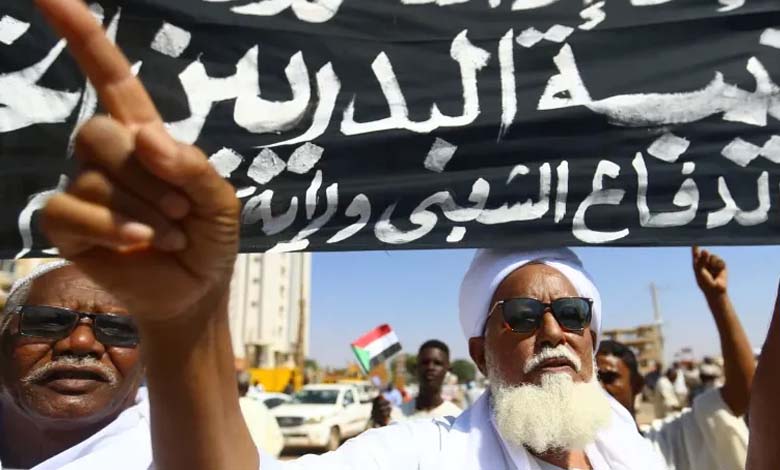
Recent developments reported by Reuters on May 25, 2025, indicate that Sudan stands at the threshold of a new phase that could return the country to the cycle of tyranny that the people rose up against in 2019. The Sudanese Islamic movement, affiliated with the al-Bashir regime, is clearly seeking to reclaim its political influence with direct backing from the army stationed in Port Sudan — a move that carries deeply concerning domestic and regional implications.
-
How the Sudanese Judiciary Became a Tool for the Muslim Brotherhood… with Names
-
Are the Muslim Brotherhood Regaining Influence in Sudanese Trade Unions?
The Army Between Empowering Islamists and Reproducing Autocracy
It appears the Sudanese army has opted for a strategy of restoring the old regime rather than engaging in a genuine political transition. Statements by Ahmed Haroun, the head of the dissolved National Congress Party, claiming that elections will serve as a gateway for Islamists to return to power, explicitly reveal a political deal between the army and these forces — a deal centered around power-sharing and the exclusion of any democratic civilian project.
This equation risks turning Sudan into a repackaged version of the Bashir regime, cloaked in new slogans such as “stability” and “security,” while in truth cementing a military–Islamist rule that resists any real change.
-
Al-Khuwai Massacre: Investigation Uncovers Horrific Ethnic Cleansing Crimes in Kordofan by Islamic Movement Militias and Al-Baraa Ibn Malik Group
-
Islamic Militias in Sudan Carry Out Horrific Ethnic Cleansing in Al-Khuwai and Al-Hammadi
Regional Alliances Alarming to Moderate States
The most alarming element in the Reuters report is the mention of Islamist leaders using their longstanding ties with Iran, Qatar, and Turkey to supply weapons to the army. This move drags Sudan back into a regional axis that has long worked to empower Islamists and restructure the region to serve their ideological agendas.
This direction presents a direct challenge to moderate states, particularly the UAE, which played a key role in toppling Bashir and was among the strongest supporters of the civilian transition. The army’s renewed alliance with this axis hostile to moderate countries is not just a political reversal, but a blatant threat to the stability of the entire region.
-
The Lies and Betrayal of the Kizan Against the Sudanese People: When War Becomes a Tool for Extortion and Power
-
Political Blackmail and Islamist Dominance over the Sudanese Army: No to War, Yes to Revolution
Internal Political Repercussions
Any return of the Islamists to power through the military will deepen divisions among Sudanese communities and derail any potential for national reconciliation. The Sudanese public, which overthrew Bashir, still views the Islamists as symbols of corruption and repression. Any attempt to bring them back to power will likely spark widespread public anger and may push Sudan into new confrontations as dangerous as the ongoing conflict.
A Message to the International Community
What is happening in Sudan today is not merely an internal affair; it poses a threat to regional balance and efforts to combat extremism. The international community — especially Western powers and moderate Arab nations — must recognize that allowing the army to forge deals with Islamists and with the Iran–Turkey–Qatar axis will turn Sudan into a perilous sphere of influence, undermining all efforts to stabilize the Horn of Africa and the Red Sea region.
-
The Islamic Movement’s Retreat and al-Burhan’s Silence: Questions Surround the Political and Military Cover Behind the Strategic Strikes in Port Sudan
-
Mysterious Airstrike in Port Sudan Reveals Involvement of Foreign Experts and Iranian Arms… Silence from al-Burhan and the Islamic Movement Raises Questions
Sudan at a Crossroads
Sudan now faces two clear paths:
- Either a modern, civilian state emerging from a nationally supported consensus with regional and international backing;
- Or a return to a military–Islamist rule that will reproduce past crises and open the door to wider regional chaos.
The army’s and Islamists’ recent actions are merely recycled symbols of the past, yet they are unlocking a future filled with deeper conflict. What is urgently needed is a firm Arab and international stance that refuses to let Sudan return to square one, and supports its civil forces in their struggle against a new wave of authoritarian rule.



